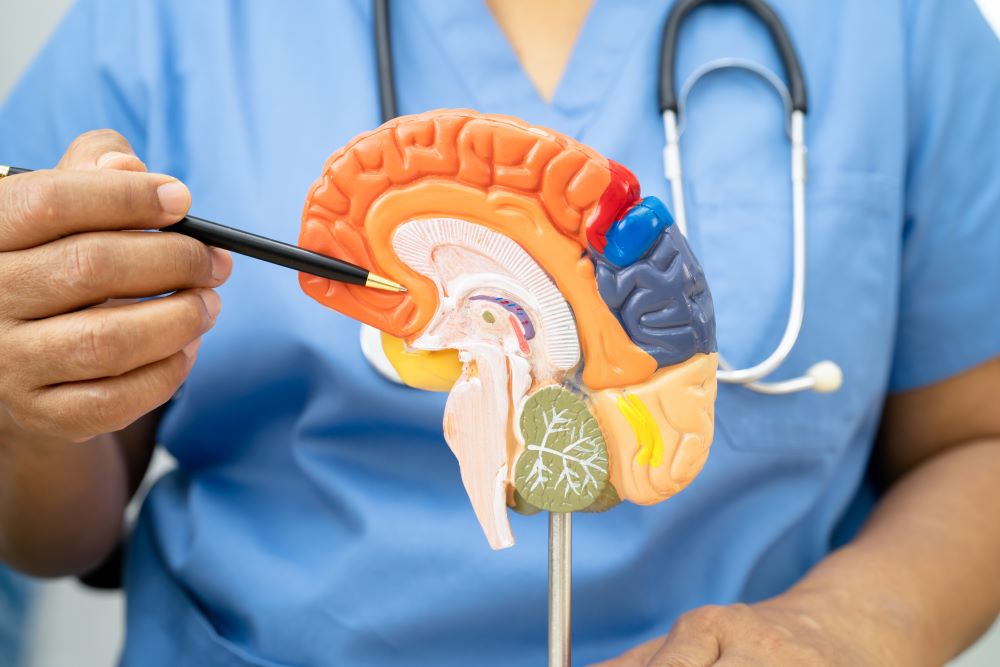List of 10 Stress Diseases in Humans

Stress and illness share a complex relationship. The susceptibility to stress is indicative and varies from person to person, irrespective of sex and age. Among the factors that trigger anxiety or tension include personality, genetic vulnerability, social support and coping mechanisms. Stress for a prolonged period makes human bodies anxious. However, when the body fails to restore equilibrium, the immune system gets adversely affected. Under such conditions, vital bodily processes are disrupted, and the body becomes susceptible to diseases caused by stress.

Table of Contents

What are Stress Diseases?
Stress diseases are health conditions that arise or worsen due to chronic stress. When the body remains in a state of stress for prolonged periods, it can disrupt various systems, leading to issues like high blood pressure, heart disease, diabetes, anxiety, and depression. The immune system may also weaken, making the body more susceptible to infections.
Additionally, stress can contribute to gastrointestinal problems, such as ulcers and irritable bowel syndrome. Managing stress through lifestyle changes and relaxation techniques is crucial to preventing these diseases.
What are the Causes of Stress?
Stress can arise from various sources, including work pressures, financial difficulties, and personal relationships. Major life changes, such as moving or experiencing loss, can also contribute to heightened stress levels. Additionally, chronic stress can be exacerbated by poor lifestyle habits, such as lack of sleep and inadequate self-care.
While short-term stress enhances immunity, chronic stress manifests diseases. Chronic stress increases catecholamine and suppresses T cell levels. This weakens the immune system and attracts viral infections.
10 Diseases Caused by Stress
Stress is a significant factor in many health conditions, impacting both physical and mental well-being. Chronic stress can lead to various diseases, highlighting the importance of effective stress management.
1. Cardiac Complications

Experts suspect that stress is one of the prime reasons behind high blood pressure and heart conditions. It negatively impacts heart rate and blood flow that eventually releases triglycerides and cholesterol into the bloodstream. Stress also invokes harmful habits like smoking, directly linked to heart disorders. Moreover, chronic stress accelerates plaque build-up in the arteries, leading to atherosclerosis due to a high-fat diet and sedentary lifestyle.
However, the correlation between stress and psychiatric conditions overpowers the relation between stress and physical illness.
2. Anxiety and Depression

The strong bond between stress and psychiatric disorder severely impacts neuroses that lead to depression and, in worse cases, schizophrenia. Besides, unresolved tension makes a person vulnerable and manifests nervousness and fear, resulting in anxiety or panic attacks.
Note: Mental health is equally important as physical health. Therefore, these conditions should be brought to the attention of professionals at the earliest opportunity.
3. Asthma

Stress releases histamine that causes severe broncho-constriction and asthma. Further, mental pressure is unhealthy for individuals with asthma, especially if someone is exposed to air pollution. This inflammation can narrow the airways, leading to difficulty in breathing. Managing stress is crucial for asthma patients to avoid frequent attacks.
4. Diabetes

People who overstress adopt unhealthy lifestyles, including excessive drinking, overeating, starving and others. These habits raise blood glucose levels, which is pernicious for type 2 diabetic patients. Additionally, as stress interrupts insulin needs, it increases the chances of diabetes mellitus among overweight individuals.
5. Obesity

Another disease caused by stress is obesity. When a person is under constant pressure, the hypothalamus sends a series of signals to secrete the cortisol hormone. High cortisol secretion leads to fat deposition in the abdomen, leading to obesity. This accumulation of fat contributes to weight gain and related health issues.
6. Migraine

Human bodies react to stressful events by releasing chemicals responsible for physical changes in the blood vessels. This reaction brings on migraine pain and severe headaches, all of which contribute to migraines. Regular relaxation techniques can help reduce the frequency of stress-induced migraines.
7. Alzheimer’s Disease

Researchers in Australia claim in a study that chronic stress is a potential reason behind Alzheimer’s disease. This could be due to the hypothalamic-pituitary-adrenal (HPA) axis response. Reducing stress through mental health care can lower the chances of developing Alzheimer's. Stress has been linked to an increased risk of developing Alzheimer's as chronic stress.
8. Gastrointestinal Complication

Some GI diseases caused by tension or stress are chronic heartburn or gastroesophageal reflux (GERD) and irritable bowel syndrome (IBS) due to alteration in stomach acid concentration. It affects the digestive system by altering gut motility and increasing acid production. Managing stress can help alleviate or prevent these painful digestive conditions.
9. Insomnia

Psychological stress interrupts sleep patterns and often causes insomnia, and by the same token, sleeplessness contributes to stress. The mind's constant worrying and overactivity disrupt sleep patterns, leading to fatigue and other health issues. Techniques like meditation and deep breathing can aid in better sleep and stress management.
10. Tumour

Stress is also correlated with tumour development. It also suppresses natural killer (NK) cells that prevent metastasis by destroying small metastases. Stress hormones can promote the proliferation of cancer cells and reduce the body's ability to fight them. Reducing stress is vital for maintaining a strong immune response and preventing tumour development.
Signs and Symptoms of Diseases Caused by Stress
Stress impacts all bodily functions, including emotions, behaviour, analytic skills and physical aspects.
An individual suffering from stress may experience the following symptoms.
Emotional Symptoms of Stress
- Low self-esteem
- Getting easily agitated, frustrated or suffering from unusual mood swings
- Feeling overwhelmed like losing control
- Difficulties in relaxing and calming the mind
- Isolating oneself
- Anxiety and worry
- Social withdrawal
- Low self-esteem
- Constant fatigue
- Lack of Focus
Cognitive Symptoms of Stress
- Excessive tension
- Racing thoughts
- Disorganised and failing to remember
- Lacks judgemental skills
- Unable to focus
- Pessimistic
- Memory problems
- Negative thinking
- Indecisiveness
- Forgetfulness
- Mental fatigue
Physical Symptoms of Stress
- Weakness
- Headaches
- Insomnia
- Indigestion, constipation, nausea and diarrhoea
- Muscle tension and pain
- Chest pain and irregular heartbeat
- Reduced sex desire or ability
- Repeated infections and colds
- Ringing in the ear, sweaty hands and feet, shaking and nervousness
- Dry mouth
- Tight jaws and grinding teeth
Behavioural Symptoms of Stress
- Overeating or loss of appetite
- Procrastination
- Excessive consumption of alcohol, cigarettes or drugs
- Nail biting, pacing and fidgeting
- Irritability and Anger
- Procrastination and Avoidance
- Neglecting Responsibilities
- Sleep Pattern Changes
However, the symptoms are indicative and different people handle stress in different ways. They can be indistinct or due to medical reactions. Therefore, professional guidance is crucial to identify the signs of stress.
Damages Caused by Stress in Humans
Stress, while a natural response to challenges, can have detrimental effects on human health when chronic. It triggers a cascade of physiological and psychological responses that can damage various bodily systems. Understanding these impacts is crucial for effective stress management.
- Chronic stress elevates blood pressure, increasing the risks of heart attacks and strokes.
- Stress can cause ulcers, irritable bowel syndrome, and other gastrointestinal disorders.
- Prolonged stress weakens immunity, making individuals more susceptible to infections.
- Leads to anxiety and depression and exacerbates existing psychiatric conditions.
- Causes insomnia or poor-quality sleep, affecting overall well-being.
- Can disrupt hormonal balance, leading to fertility issues and sexual dysfunction.
Risk Factors Associated With Diseases Caused by Stress
Stress-related diseases are influenced by various risk factors that can aggravate physical and mental health. Recognising these factors is essential for prevention and management.
- Chronic stress can lead to several health issues due to its impact on the body's physiological and psychological systems.
- Poor lifestyle choices, such as unhealthy eating and lack of exercise, often accompany prolonged stress, increasing the risk of heart disease and obesity.
- High-stress levels can impair immune function, making the body more susceptible to infections and illnesses.
- Individuals experiencing chronic stress may have difficulty managing their blood pressure, which can contribute to hypertension and cardiovascular problems.
- Stress often disrupts sleep patterns, leading to insomnia and fatigue, which can further exacerbate physical and mental health issues.
- Prolonged stress can contribute to mental health disorders, such as anxiety and depression, impacting overall quality of life.
- Chronic stress can lead to substance abuse as individuals might turn to alcohol, drugs, or smoking as coping mechanisms, which pose additional health risks.
- Addressing these risk factors is crucial for mitigating the adverse effects of stress on health.
How is Stress Disease Diagnosed?
Diagnosing stress-related diseases involves various tests to evaluate both physical and psychological aspects. These tests help healthcare professionals understand the impact of stress on the body and mind, leading to appropriate treatment plans.
Treatment Methods for Stress Disease
Treating stress-related diseases requires a multi-faceted approach, focusing on physical and mental health. Various treatment methods aim to alleviate stress and prevent related health complications
- Cognitive-Behavioral Therapy (CBT): Aims to change negative thought patterns, improve stress management, and reduce anxiety and depression.
- Mindfulness Meditation: Encourages present-moment awareness, helping individuals manage stress, improve focus, and reduce symptoms of anxiety and depression.
- Regular Physical Exercise: Enhances mood by releasing endorphins, reduces stress, and promotes overall physical health, lowering the risk of stress-related diseases.
- Healthy Diet And Nutrition: Focuses on balanced meals rich in nutrients, helping stabilise mood, boost energy, and support immune function against stress-related illnesses.
- Relaxation Techniques (Eg. Deep Breathing): Helps calm the nervous system, reducing physiological stress responses like elevated heart rate and blood pressure.
- Adequate Sleep: Prioritises quality rest to rejuvenate the body, improve cognitive function, and reduce stress, preventing long-term health issues.
Effective stress management through these treatment methods can significantly reduce the risk of stress-related diseases. A holistic approach ensures both mental and physical well-being, promoting overall health.
Preventive Measures to Control Diseases Caused by Stress
Feeling stressed out, emotional or nervous is a common human trait. Here are some practical and healthy ways to deal with such conditions.
1. Seek Professional Help
Sharing one’s insecurities and worries with others helps in unburdening stress. Individuals can visit a mental health counsellor for professional guidance Therapy offers a safe space to explore underlying issues and develop coping skills. Don’t hesitate to seek help when needed.
2. Exercise and Yoga
A regular workout regime significantly improves physical health and rejuvenates the mind. Besides, several yoga asanas potentially relieve anxiety and stress.Aim for at least 30 minutes of moderate exercise most days of the week.
3. Muscle Relaxation
Stress causes muscle stiffness and headaches. While some stretching exercises relieve muscle pain, a hot bath and whole-body massage equally heal oneself from within.Incorporate these techniques into your routine to manage stress and enhance well-being.
4. Proper Balanced Diet
Following a healthy diet helps in mood regulation by coping with stress. Fatty fish, vegetables, whole grains, fruits potentially releases tension. Besides, refreshments such as green tea and chamomile tea comprise healing properties vital for rejuvenation.
5. 8-Hours Sleep
Sleep is a potential stress buster. An 8-hour sleep routine will calm the mind and restore the body. It regulates mood, strengthens concentration and improves decision-making and analytical skills.
Apart from these, people suffering from diseases caused by stress should engage in activities to speed up the healing process.
6. Engage in Hobbies and Leisure Activities
Participating in certain hobbies and leisure activities provides a break from daily stressors and promotes relaxation. Engaging in activities you enjoy helps shift focus away from stress, boosts mood, and refreshes your mind.
8. Develop Strong Social Connections
Building and maintaining supportive relationships can provide emotional support and reduce feelings of stress. Socialising with friends and family helps share burdens and gain perspective. Strong social connections also offer a sense of belonging and security.
Apart from these, people suffering from diseases caused by stress should engage in activities to speed up the healing process.
Does Health Insurance Cover Stress Diseases?
Health insurance coverage for stress-related diseases varies depending on the policy and provider. Typically, insurance plans cover medical treatments for conditions directly linked to stress, such as anxiety, depression, and gastrointestinal issues. However, coverage for therapy, counselling, or alternative treatments might differ.
Reviewing your policy details to understand the extent of coverage is essential. Many insurance plans offer mental health benefits, including stress management and related therapies. Always check with your insurance provider to confirm coverage details and any potential out-of-pocket costs.
Stress can lead to a range of health issues, from cardiovascular diseases to mental health disorders. Recognising the symptoms and understanding the impact of stress on the body are crucial steps in managing these conditions. Regular self-care and a proactive approach to stress can significantly reduce the risk of developing stress-related diseases.














